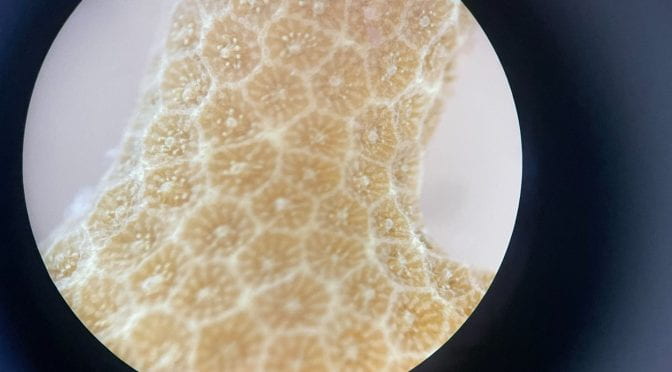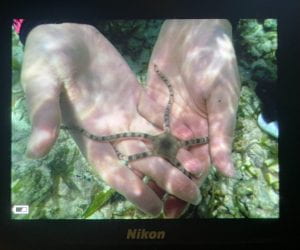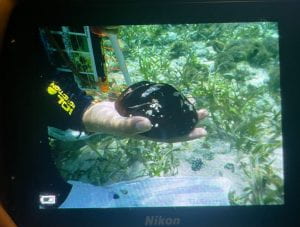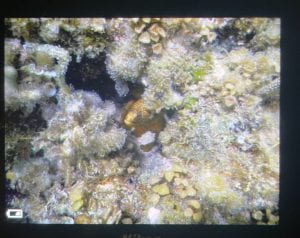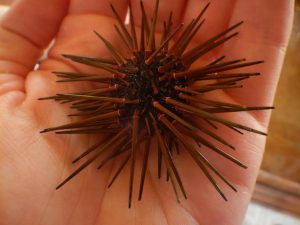Today was such a fun day despite it being more land based than the previous few have been. This morning we waded into the mangroves and sea grasses right I off the island. We were told we should collect anything that was not nailed down, and while most things swam far too fast for us to catch with small nets and buckets, we still found a cool assortment of animals. We found multiple hermit crabs of varying sizes, a large purple crab, some tiny fish, a tiny crab, and a box jellyfish amongst other things (no one got stung by the box jelly). After bringing them into the wet lab and observing them, we released them back into the sea grasses and mangroves.
I also saw a small lemon shark around us the whole time we were in the mangroves and seagrasses. It was trailing bonefish (of the same size as itself) but didn’t seem to be hunting very aggressively.
Right before lunch I saw a nurse shark (probably the same one we’ve been seeing) under the dock resting. It didn’t move very much.
After lunch we walked around the island where w got to see a coral graveyard. Since the island is on an atoll, half of the island is incredibly protected waters and half of the island has large wave break from the open ocean. We hadn’t spent much time on that side of the island before today, so it was interesting to see it. Since atolls are made of a ring of coral and this reef has been bashed by waves for thousands of years, the entire coast was made up of fossilized corals. It also created an interesting intertidal zone where I found some large conchs and a ton of brittle stars (in the picture below).
By night we were planning on doing a night snorkel but the wind was too strong so we just dropped a light below the dock to see what came by. There were some small fish and shrimps as well as glad seals (super cool and minimally studied translucent larval stages of certain fish and eels). After waiting a while, a squid came by! Claire D caught this squid in one attempt and we watched it ink in a bucket.
All in all, today was so interesting since we saw so many different animals across the shallow ecosystems surrounding Middle Kay.
Claire C






